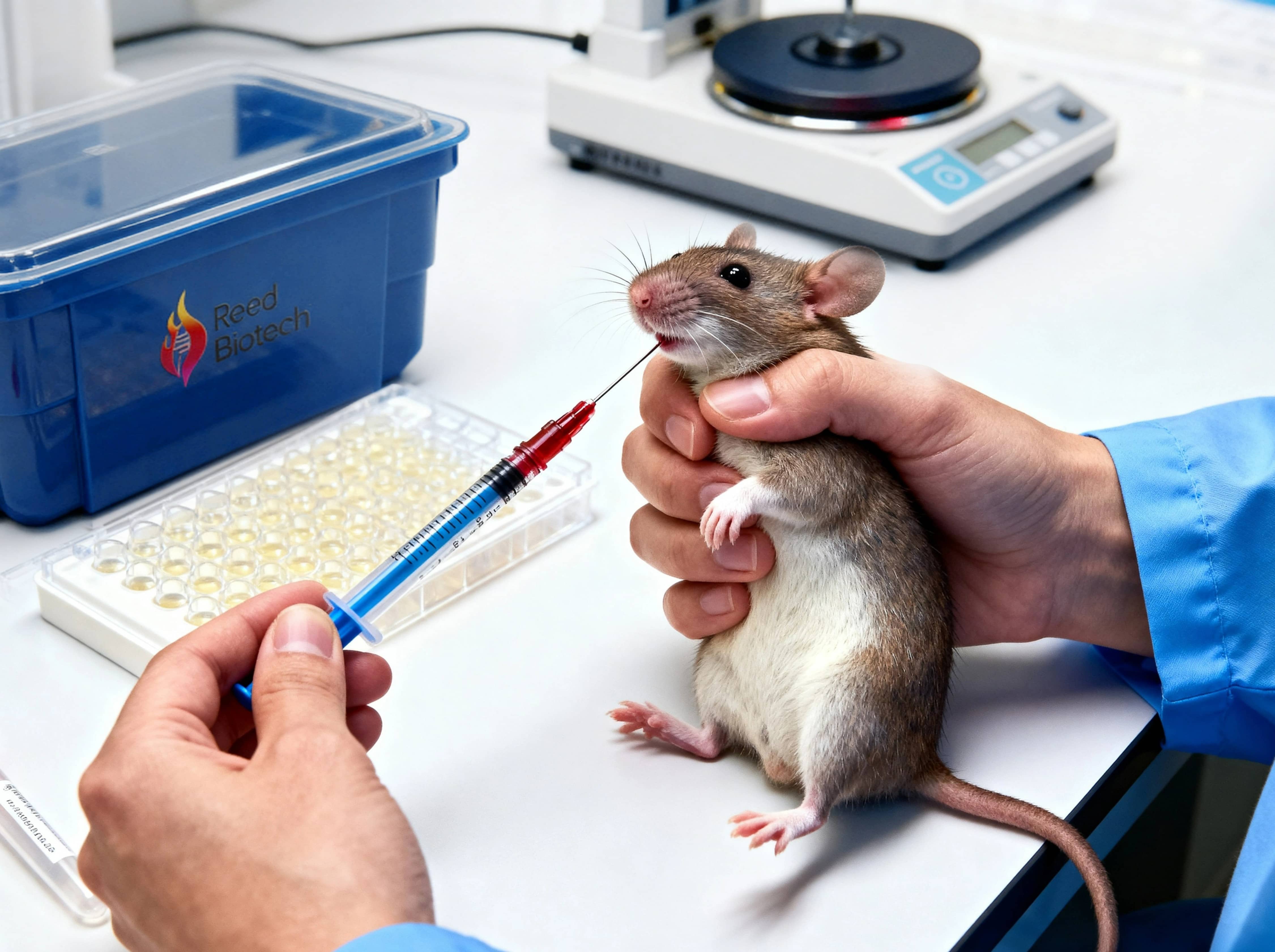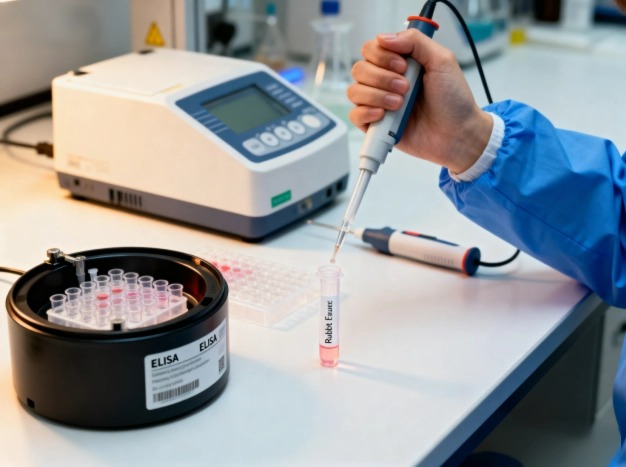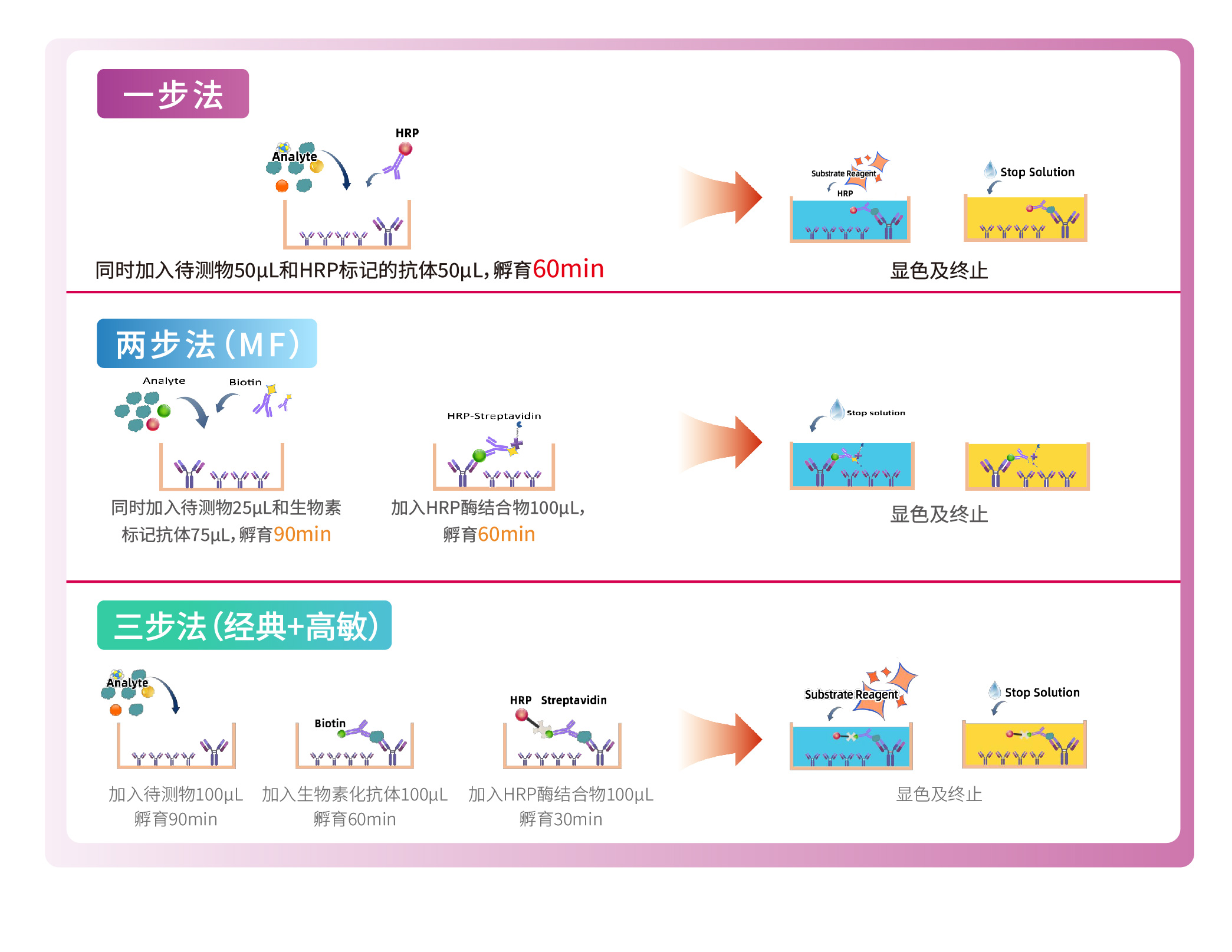World Animal Day Special | Protecting “Research Partners” with Technology
—— Reed Biotech® ELISA Kits Make Animal Research More Humane
October 4 marks World Animal Day, a day established to raise awareness of animal welfare. In the field of scientific research, it also serves as a tribute to a special group of “partners” — the laboratory animals that have dedicated their lives to advancing medicine and drug development.
According to the Association for Assessment and Accreditation of Laboratory Animal Care (AAALAC), approximately 100 million laboratory animals are used in scientific research each year worldwide. They are the silent partners driving medical breakthroughs and conquering complex diseases.
In studies on neurodegenerative diseases, cancer therapy, and other cutting-edge research areas, laboratory animals are indispensable companions to scientists. However, due to the limitations of traditional ELISA kit technologies, experiments often require repeated blood sampling and large sample volumes — causing pain and unnecessary loss to animals.
How can researchers ensure both high-quality results and a more humane laboratory experience?
Reed Biotech® ELISA Kits are making it possible — using technological innovation to safeguard animal research and bring warmth to every experiment.

(1) Micro-Volume Detection: Minimizing Blood Sampling Harm
In traditional mouse inflammation experiments, each blood draw required at least 50 μL, with each mouse sampled three times during a study. Many mice were lost due to excessive blood loss.
Reed Biotech® ELISA Kits adopt nano-level antibody coating technology, significantly improving the efficiency of antibody adsorption on the plate wells. Compared with traditional ELISA kits, the sample volume per assay is reduced to just 25 μL.
This means that a single blood draw can now measure 3–5 indicators such as IL-6 and TNF-α simultaneously — eliminating the need for multiple samplings.
Micro-volume sampling not only reduces stress responses in mice but also lowers mortality caused by excessive blood collection.

(2) One-Step Assay Process: Shortening Experimental Cycles
Conventional ELISA assays require three incubation steps and take up to 3.5 hours, extending experiment duration and increasing the risk of sample contamination due to multiple handling steps — often leading to repeat experiments and greater animal use.
The innovative one-step detection technology of Reed Biotech® ELISA Kits simplifies incubation to just one step, cutting total test time down to 1.5 hours.
This advancement not only improves research efficiency but also reduces animal housing time and stress exposure, while minimizing contamination risks and avoiding repeated sampling that causes additional suffering.
(3) High-Sensitivity Detection: Reducing Pain Through Precision
Traditional ELISA kits often lack sufficient sensitivity, making it difficult to detect low-concentration cytokines and forcing repeated tests.
Reed Biotech® High-Sensitivity ELISA Kits achieve an impressive( limit of detection (LOD) of 0.1 pg/mL), enabling precise measurement even from trace samples.
By obtaining accurate data the first time, researchers can avoid redundant experiments and reduce the number of animals used.
Every reduction in sample volume is a step toward less suffering; every fewer blood draw is an act of respect for life.
|
Performance |
High-Sensitivity |
Micro-Fast |
One-Step |
|
Sample Volume |
100 μL |
25 μL |
50 μL |
|
Experimental Steps |
3 |
2 |
1 |
|
Detection Time |
3.5 h |
3 h |
1.5 h |
|
Incubation Steps |
3 |
2 |
1 |
|
Washing Cycles |
9 |
6 |
5 |

A Call to Action: Join the “Technology for Animal Welfare” Movement
Scientific research is not only about exploring the unknown — it is also about advancing knowledge with compassion.
This World Animal Day, Reed Biotech invites every researcher to choose more animal-friendly experimental tools, reduce redundant tests, and show care for the “research partners” who make discovery possible.
If you are already practicing animal welfare in your lab, we welcome you to share your story in the comments.
Let’s work together — using technology to protect life and bring warmth to the path of scientific exploration.
Related target recommendations::
|
Type |
Product Name |
Item number |
Link |
|
High Sensitivity
|
Rat High Sensitivity IL-4 |
RE1055RG |
https://reedbiotech.com/pro/9836 |
|
Mouse High Sensitivity IL-4 |
RE1055MG |
https://reedbiotech.com/pro/9644 |
|
|
Mouse High Sensitivity IL-1β |
RE1074MG |
https://reedbiotech.com/pro/9643 |
|
|
Mouse High Sensitivity IL-13 |
RE1056MG |
https://reedbiotech.com/pro/9639 |
|
|
Human High Sensitivity IFNα |
RE2839HG |
https://reedbiotech.com/pro/9837 |
|
|
Micro-Fast
|
MF-Mouse IL-6R |
RE1100MF |
https://reedbiotech.com/pro/9635 |
|
MF-Mouse IL-10 |
RE3187MF |
https://reedbiotech.com/pro/9630 |
|
|
MF-Mouse IL-18 |
RE1123MF |
https://reedbiotech.com/pro/9631 |
|
|
MF-Mouse PDCD1 |
RE3054MF |
https://reedbiotech.com/pro/9634 |
|
|
MF-Human IL-23 |
RE1058HF |
https://reedbiotech.com/pro/9623 |
|
|
One-Step
|
FS-Rat CRP |
FS2854R |
https://reedbiotech.com/pro/9699 |
|
FS-Mouse IgE |
FS2824M |
https://reedbiotech.com/pro/9700 |
|
|
FS-Mouse F12 |
FS1426M |
https://reedbiotech.com/pro/9696 |
|
|
FS-Mouse LEP |
FS2739M |
https://reedbiotech.com/pro/9668 |
|
|
FS-Human INS |
FS3153H |
https://reedbiotech.com/pro/9689 |
